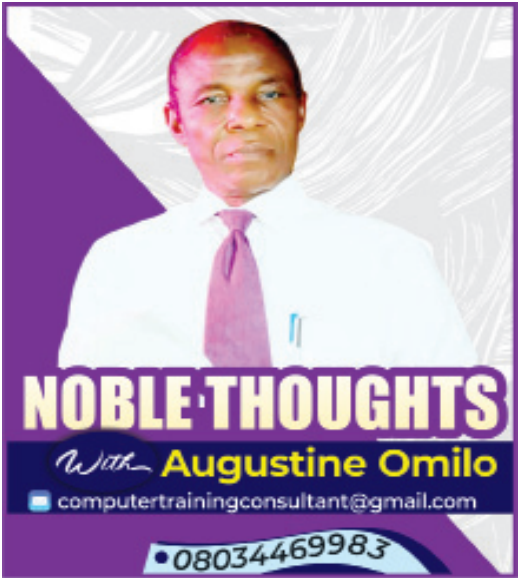BY AUGUSTINE OMILO
POLITICAL Independence is the condition of a nation, country, or state in which the population or some portion thereof become free to exercise self-government with accompanying sovereignty over its territory. The commemoration of the Independence Day of a country or nation therefore, only connotes the joyful remembrance of when she became free from all forms of colonialism and imperialist interventions on how it was governed. The follow-up to political independence is the guaranteed freedom to build a country or nation without interference from other nations.
This was exactly the type of independence granted Nigeria in 1960 by the British Colonialists. Those who blame the country for not living up to expectation after 65 years of political freedom are either not fair to her or they do not understand the correct definition of independence.
Even though Nigeria is free, many citizens do not appear to be appropriating the independence to their individual acts of patriotism. The British handed Nigeria to Nigerians, but the people have refused to act accordingly. Instead, they blame government for all the ills of the society. According to John F. Kennedy; “And so, my fellow Americans, ask not what your country can do for you, but whay you can do for your country. My fellow citizens of the world, together we can work for the freedom of man.” Instead of acting this way, many have continued to look up to government for roles that are performable by the citizens.
The country’s case can be likened to that of a former prisoner released from Agodi Prisons, Ibadan many years ago due to an amnesty granted by the governor. He left the prison quite alright, but went to Iyagokun police division and remained in the vicinity for many days until a Good Samaritan found out that he had not realized his freedom from his prisoner status. It was the Good Samaritan that took the partially insane man to his village for rehabilitation. His being aware of his freedom would have helped to determine his conduct after leaving Agodi.
Until Nigerians realize that they are also part of the reasons behind the slow pace of development in the country, the narrative may not change soon.
We can continue to hinge the nation’s predicament on strong or weak institutions to no end. The challenge will still be there. If a man is made a Permanent Secretary and he sees his new role as an opportunity to enrich his family and friends, instead of acting like the colonial masters who were only interested in making things work the right way, such attitude cannot be blamed on leadership. Who else can be more of a leader than such a Permanent Secretary?
In 2023, the nation was inundated with news of the preparation towards conductinga national census. The move was shifted in order to pave way for the smooth conduct of the general elections. Since then, no mention has been made about the way forward in that regards by the man at the helm of affairs at the National Population Commission who was a Nigerian before his appointment. Or, is he also not part of government?
All over the world, schools remain the breeding centre for leaders. Relevant civic norms are inculcated into the lives of learners. But our society is one of the few such places where lecturers scramble for contracts to supply writing projects, writing thesis and dissertations for their trainees, despite being expected to be role models.
Malpractices in schools cut across all stages of education in the country. Many parents are known to have taken their children and wards to designated special centres for the purpose of writing examinations as common as the Primary School Leaving Certificate Exam. This form of malpractice is with the connivance of some teachers and represents lesser embarrassments, compared to the actions of those who outrightly indulge in certificate racketeering.
Meanwhile, as many people continue to blame government for disobeying court orders, even some Nigeria-based human rights or labour unions are often caught in the web of disobeying court orders too. This was the case recently when the Petroleum and Natural Gas Senior Staff Association of Nigeria (PENGASAN) denied knowledge of a court injunction restraining it from mobilizing members for strike action in protest against the Dangote Refinery in Lagos.
As important as the National Anthem is, not many Nigerians, including students and pupils cannot boast of being able to recite it. Yet, this is the nearest combination of words that can be assumed to be the Nigerian dream.
In the words of Captain America, in Civil War: The Amazing Spider; “it doesn’t matter what the press says. It doesn’t matter what the politicians or the mobs say. It doesn’t matter if the whole country decides that something wrong is something right. This nation was founded on one principle above all else: The requirement that we stand up for what we believe, no matter the odds or the consequences. When the mob and the press and the whole world tell you to move, your job is to plant yourself like a tree beside the river of truth and tell the whole world ‘No, you move.’”
So, as citizens, before taking our leaders to task, what virtues are we prepared to present before the world as our own part of the governance deal that we hold so dear to our chest that we can use in challenging the so-called leaders on accountability.
Having received freedom from Britain, Nigerians, including teachers, religionists, the ‘talakawas’, politicians, students and the high-net worth individuals must rise to the challenge of seeing Nigeria’s plight as a call to patriotic repositioning for the needed independence, a mindset of ‘Nigeria-my-country, our country’ before anything else.


